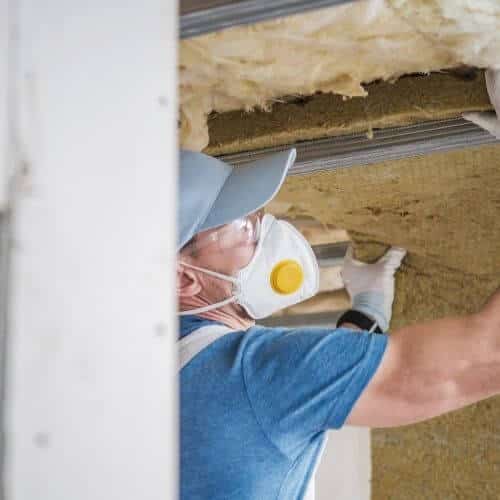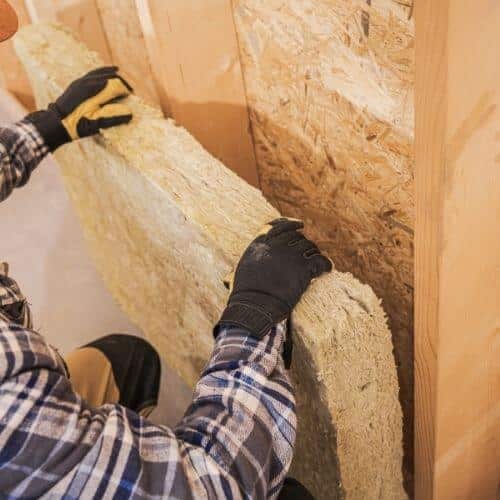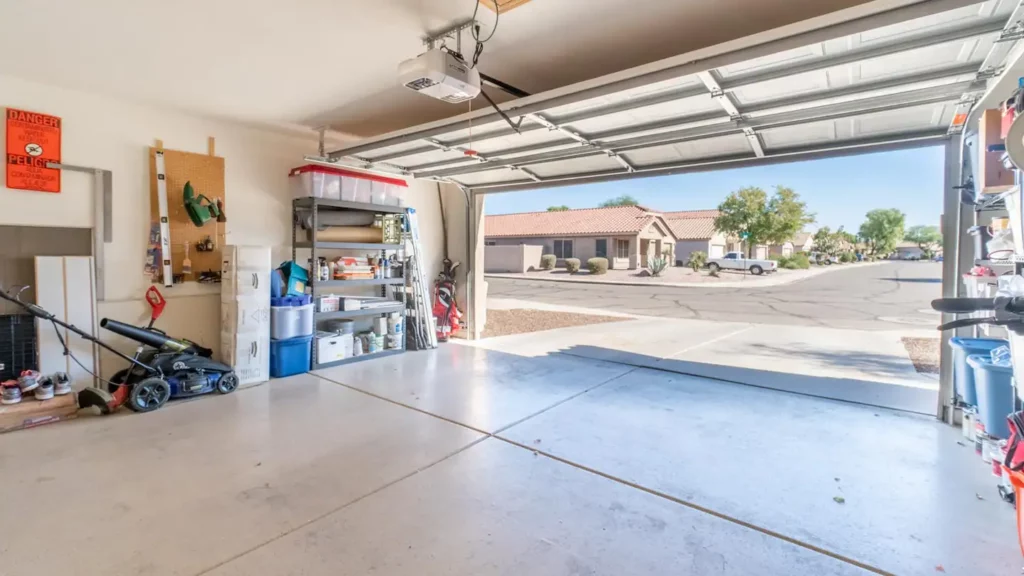Do you know how to run plumbing to a detached garage by yourself?
Getting a new garage is a useful addition to our household. It can free up space, relocate functional parts of the home, and even serve as an extension of our living quarters.
However, the garage will require some extra setup. Doubly so if it’s detached from the household.
Detached garage
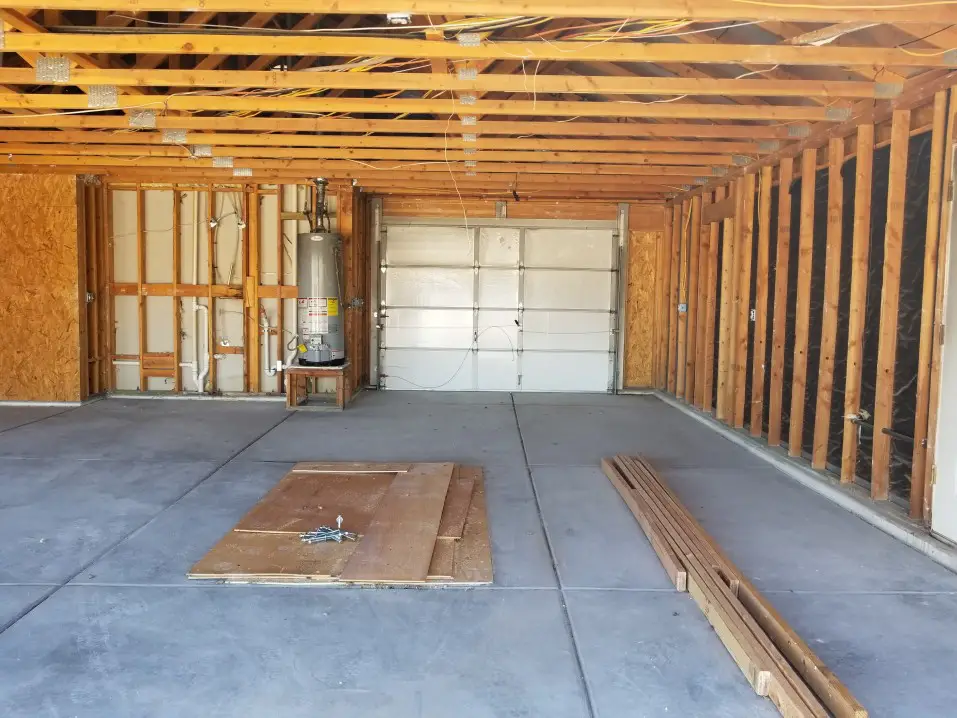
A detached garage refers to a garage that isn’t directly attached to a wall of a house. These garages stand separate from any part of the house, which means they often require their own installations.
This is true for plumbing as well. A detached garage will need plumbing installed separately from the house in order to have functional water sources present. Without these, any faucets within the garage will be unable to deliver water.
No matter the size of the garage, this will be a prerequisite. The size merely changes the complexity of the actual pipeline. Depending on the amount of water you need the complexity of your entire pipeline will also change. [1]
How to get the best results when plumbing a detached garage?

It’s important to consider a few factors before properly starting our plans for the garage proper. These will give us a good idea of the things to include in the project.
Anything from rooms to lines our installations have to follow will be succinctly solved with a bit of effort in these early phases.
- Decide what its purpose will be
Not all garages have the same purpose. Some are meant as storages, some as workspaces, and others as proper residences. Decide what your garage will be used for before committing to any further planning. [2]
As you can imagine, the requirements will be different for a location where somebody’s supposed to live in and one where you’d just store items. Doubly so when it comes to forwarding water into different parts of the garage. In fact, some forms of garages may require only rudimentary plumbing to do their job.
- Know the layout
As we’ll see later, the layout of the garage can heavily influence its application. There will be myriad factors to consider but the way our garage is structured and where the water should be connected remain necessary for the eventual plumbing plan.
The specifics of the land and materials present in our garage can also affect the plumbing process, which is why knowledge of this topic is required.
- Get estimates from multiple plumbers
Having multiple takes on the same project means more perspectives in general. Some plumbers may neglect possible difficulties in fulfilling your project or overshoot the required costs.
Although you shouldn’t skimp on money, gathering information from multiple sources and knowing how much each approach would run you is useful.
This can improve the quality of our plumbing while cutting on potential costs as well. Remember that the goal of getting estimates from multiple sources isn’t just to find the cheapest option, but the most efficient and reliable.
How to run plumbing to a detached garage?
A detached garage will need separate plumbing from the household. This is done for most separate parts of our house. With the way our pipes are laid, it’s an extra concern to look out for.
Knowing where and how to run these pipes is key for a well-functioning pipe system in the garage. [3]
The general health of our garage’s pipe system will reflect on the longevity of the garage itself too. Especially with the consistent use of water within the garage. Faucets and valves need proper maintenance or the system will soon suffer from wear and tear.
How to install plumbing in a detached garage?
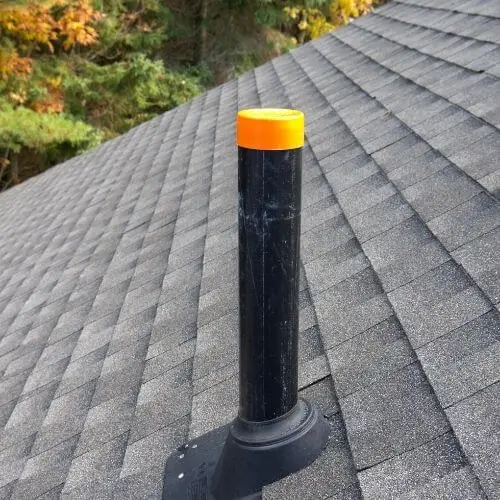
The steps to installing proper plumbing in your garage are few but sizeable. Each step can take quite a bit of time to resolve, doubly so if your detached garage has any non-standard aspects to it.
These include position, location, internal requirements, and a lot of other aspects. Throughout the steps of getting plumbing for your detached garage, you’ll have to plan the project out and then put it into action.
- Make a plan of connection
Before any work can start, a good plan for the plumbing for your detached garage is required. Having a proper slope for drainage, knowing what distance there is between the two, how close to the main pipe the garage is, and the complexity of the piping are all things to consider when making this plan.
Redoing a plan after work has already underway will cost you and can often cause complications. Get a plan hashed out fully before the work has started to avoid these pitfalls. Consulting your plumber on the best course of action is a good way to ensure satisfaction.
- Dig out
Once we have a proper plan for the pipeline, it’s time to get digging. The plan for your pipeline is the same one that will be used for digging out the required pipes. It’ll be among the more intensive actions for the installation.
This goes double if your main pipe is deep underground. The time required will also vary based on your plumber’s available equipment, so keep that in mind when planning how and where to dig.
- Install plumbing
The most important part of the functionality is the installation step. If anything goes wrong during this time, we can suffer issues with the plumbing later down the line. Doubly so if we are working with far more complex plumbing.
One of the most important parts of the plumbing is making sure that connections are properly done and everything is set in its place. This reduces the chances of leaks, infestations, and clogs.
The quality of our piping is also an important factor, which is why you should take time with the installation like this. Being too quick with it risks improper installation and issues later down the line.
Investing extra money into the materials is also important, as it will increase the longevity of the entire system.
Factors that affect the cost of plumbing a detached garage
Aside from the aforementioned concerns, we have to take into account the factors that will affect the price. Though some pricier approaches need to be taken for the sake of reliability, it pays to know what will impact our price the most. This can also help us look out for better deals when purchasing the required items. [5]
- Material cost
The first source of costs will come from the material required for the whole construction. The quality of chosen materials, as well as their general pricing, will come into play too. Pipes and valves are the key sources of costs, so take care when choosing them. It could make a difference in price.
- Foundation
Your detached garage will need its own foundation. It’s the key part of the construction process and often one that needs the most planning in order to ensure sturdiness.
Unless you already have a detached garage with inoperable plumbing, which may require you to dig into the foundation still. Either way, the foundation will be a required part of the equation and affect the eventual cost of the entire project.
- Depths of the main pipe
The main pipe and its position are one of the main factors in calculating the eventual costs of your detached garage’s plumbing. The depth at which your main pipe runs is an especially important factor.
The deeper it is the more money you will need to drill down to it and connect the plumbing of the garage to the main pipe. Before any work is done, check the specifics of its location and depth.
- Detached garage layout
Depending on the way your detached garage is laid out, the costs may change as well. The distance between it and the house will play a factor as well.
If the distance between the two is rather big, the costs of connecting the garage to the plumbing will also increase.
In case your garage has faucets located in multiple spots, especially farther apart, the costs will also rise. All the extra work that goes into complex pipework will be reflected in the eventual price of the installation.
Detached garage plumbing maintenance
The plumbing in your detached garage is a consistent concern. Maintenance of these parts is another important aspect of our detached garage’s plumbing.
The plumbing will wear out, accumulate debris, and risk pests infesting it. Let’s go over all the possible ways to deal with the issues that arise over time which involve detached garage plumbing maintenance.
- Take care of what you flush
You shouldn’t flush tissues, paper towel rolls, or anything else that’s slow to degrade. Otherwise, the pipes will clog. This is a preventative measure intended to prevent any issues from coming to your pipework in the first place.
- Inspect for leaks
A simple check of your water pressure and exposed piping should help you catch leaks before they get worse. If leaks are left to grow they will lead to some considerable issues.
- Make sure to clear debris consistently
Using a mix of vinegar and baking soda can make it easy to flush any sort of debris that accumulates. Otherwise, it will similarly clog our entire pipework.
- Check for infestation
Should cockroaches or rats appear in our garage, we should immediately get a pest check done on the entire place. The bigger this infestation grows, the greater the risk of our house being invaded too.
Read Also: Cleaning Out Garage
Conclusion
There are a large number of factors that affect the plumbing of our detached garage. These can impact cost, the outline of the project itself, and the reliability of the entire structure.
The factors will tie into the actual construction of the garage too, which is why the project should be planned following our wishes for the structure itself.
Hash out the functionality of the garage first. After that is done, check what the expenses of the entire process will be.
Getting multiple estimates after that and revising them should give you a good idea of the possible outcomes of the project. Lastly, remember to maintain your plumbing to avoid any future issues that could compromise its structure.
Read Next: Sourcing High Quality Metal Garage Kits

Michael Davis is a heating & plumbing expert who currently works as independent contractor in SC. He also writes for Plumbertip.
For almost 10 years he worked on various plumbing tasks across South Carolina.
